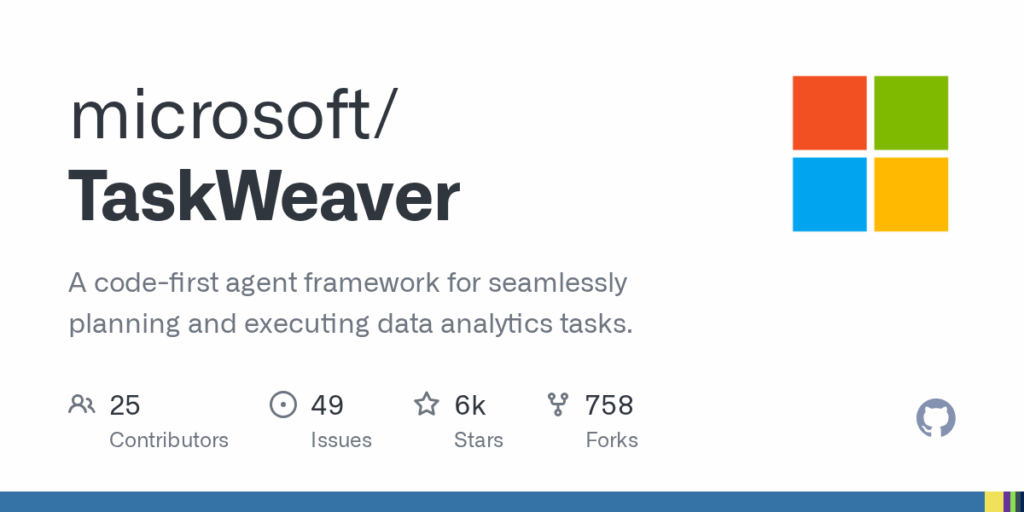TaskWeaver
Basic Information
TaskWeaver is a code-first agent framework designed to plan and execute data analytics tasks by generating and running code snippets. It interprets natural language requests, decomposes complex tasks, and orchestrates plugins implemented as Python functions to perform data operations. The framework preserves both chat history and code execution history, including in-memory data structures such as DataFrames, which makes it suited for workflows that require handling rich, high-dimensional tabular data. TaskWeaver supports multiple interaction modes including a command line interface, a demo Web UI, and import as a library. It requires Python 3.10 or newer and relies on user-provided LLM configuration. The repo includes sample plugins, demo examples like anomaly detection and time series forecasting, documentation, and instructions for containerized code execution using Docker.








